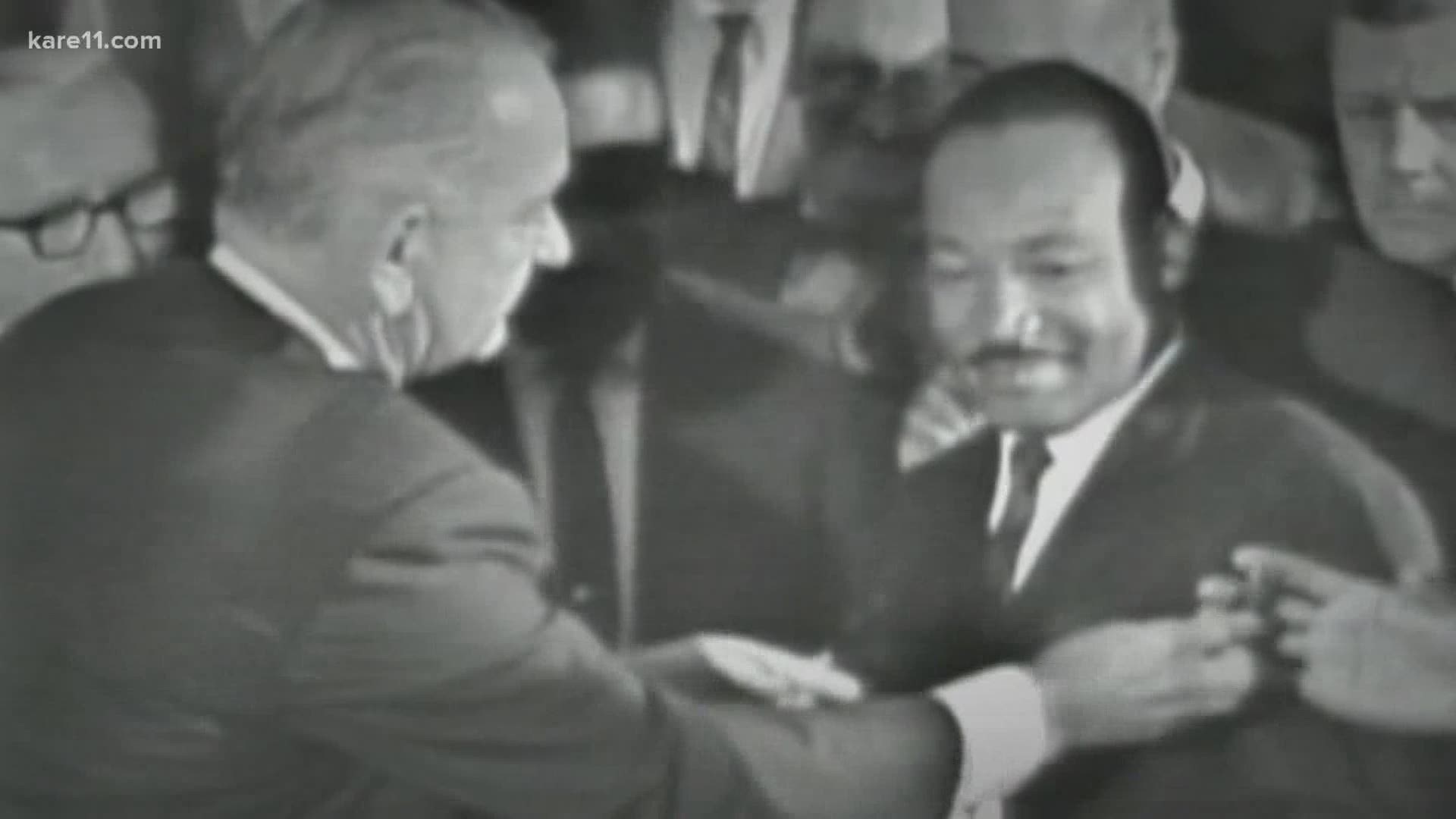Video showing former President Lyndon B. Johnson signing the Civil Rights Act of 1964 is a bit grainy and blurry. But 56 years later, the message of the landmark civil rights act is clear: Discrimination on the basis of race, religion, sex or national origin is illegal. The fight for those rights are still taking place 56 years later.
And the push, has new fuel following George Floyd's death.
Abou Amara is a civil rights attorney who entered this field after seeing discrimination first hand. Everything from discriminating against an immigrant or and women whose first language was not English.
"I grew up with a single mom who is an immigrant from West Africa and saw how systems treated her. She cleaned hotels. I have seen it up close and the impact it can have on children and their families," he said. "Ever since then I decided what I saw wasn't right and I had to be part of the solution. As a person with brown skin I am able to do this because this act."
Amara said the civil rights act reminds us how far we have come and how far we have to go.
"It ended segregation in public places. It makes sure that regardless of the color of your skin you could have access to an education," he said."I think we need to move in some spaces of economic justice and laying out a framework of what does our society look like for people to have equal opportunity. What are the rights that we should have in a modern world? If we are thinking in that frame we are going to fit in the same strain of history as Dr. King, as W.E.B. DuBois and other advocates who were pushing for the civil rights acts of their time."
He adds,as good as the act has been America needs more.
"I think, first we have to pass the equality act which would extend protection to our LGBTQ brothers and sisters. Last protected group that has not had the full protection," he said. "If we are thinking in that frame we are going to fit in the same strain of history as Dr. King, as W.E.B DuBois and other advocates who were pushing for the civil rights acts of their time. In addition to passing laws and provide legal connections ... we must change minds in community. "

